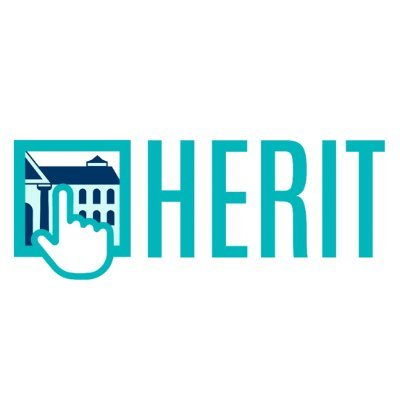 HERIT – Heritage Efficient through Relevant IT use (2021-2023)
HERIT – Heritage Efficient through Relevant IT use (2021-2023)
HERIT– Heritage Efficient through Relevant IT use, is an Erasmus+ funded project, starting from June 2021 until end of May 2023.
This 24-month project specifically aims at boosting the digital education readiness of the private owners of historic houses, helping them to face the dramatic impact of the COVID-19 crisis on cultural tourism. The central element of HERIT is the creation of a massive open online course (MOOC) tailored for private owners of historic houses. The course will aim at developing and enhancing the expertise of the owners themselves in business development and in the use of digital tools, as well as their knowledge of the regulatory and legal framework in the cultural heritage sector at the national and European level. EHH as an association represents the primary target group of the expected outputs of the project. This is why EHH will play a leading role in relation to different aspects of the implementation of the project itself and in particular: the collection of information and statistical data regarding the private historic houses sector; the maintenance of contact and exchange of information with the national historic houses associations and private owners to ensure that the content of the MOOC is truly responsive to the real needs of its target groups; and the promotion and dissemination of the online course.
Latest News: CALL FOR PARTICIPANTS TO THE EARLY BIRD ACCESS!!
The HERIT MOOC will officially be available following the project’s final conference scheduled for 23 May in Brussels. Nevertheless, we would like to kindly offer you an Early Bird Access for helping us create such high-quality work. This preview includes an exclusive evaluation activity, giving participants the opportunity to share their impressions and comments with the project team. Thus, by taking part, you would also allow us to collect first valuable feedback on the HERIT platform and its content.
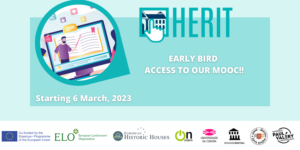 Each of the four modules comprises a theoretical part illustrated by practical examples implemented by private owners. Participants then assess their newly acquired knowledge through quick exercises at the end of each module. This training is based on a learning model extended over 4 to 5 weeks, and which requires a commitment of up to 3 hours per week. Upon completion of all modules, they will be awarded a HERIT TRAINING CERTIFICATE OF ATTENDANCE. As it is important to maintain new skills, the students will not only be ready to put them into practice in their historic house as soon as they complete the MOOC, but they will also have the opportunity to come back and consult the different modules as many times as they wish in order to refresh their memory.
Each of the four modules comprises a theoretical part illustrated by practical examples implemented by private owners. Participants then assess their newly acquired knowledge through quick exercises at the end of each module. This training is based on a learning model extended over 4 to 5 weeks, and which requires a commitment of up to 3 hours per week. Upon completion of all modules, they will be awarded a HERIT TRAINING CERTIFICATE OF ATTENDANCE. As it is important to maintain new skills, the students will not only be ready to put them into practice in their historic house as soon as they complete the MOOC, but they will also have the opportunity to come back and consult the different modules as many times as they wish in order to refresh their memory.
In addition, we are also offering all attendees of this early session a priority access to our Workshop on “How to use digital tools to maximise the visibility of your heritage property ?”, also scheduled for 23 May in Brussels. Indeed, on the same day as the HERIT final conference, we invite you to attend a workshop composed of relevant expert interventions followed by a brainstorming session. This high-quality event will bring together a large network of stakeholders to encourage the sharing of best practices among private owners and professionals. Moreover, it will especially aim at helping early MOOC participants with advancing the skills developed during the online courses.
You can register for the Early Bird Access of the MOOC starting 6 March here as well as check the leaflet for more information on the course and its content.
The Executive Summary Guide is now available on the HERIT project website
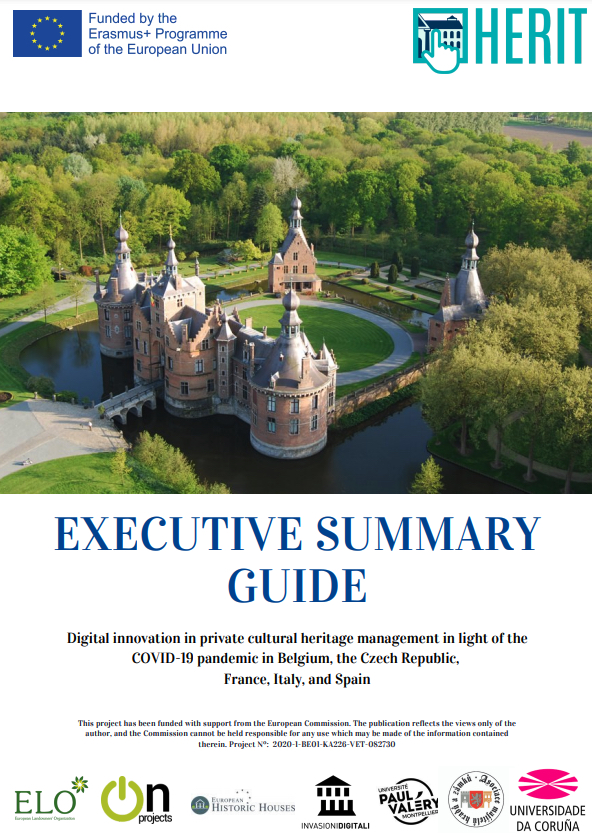
More than 40% of European heritage houses belong to families and provide multiple contributions to the EU including cultural, social, educational and environmental benefits that reach far beyond the physical boundaries of their properties. These contributions help to foster social cohesion across Europe by embodying a European identity, preserving social ties within rural areas, and making an undoubted contribution to tourism.
However, the COVID-19 crisis has had a dramatic impact on tourism-related to heritage houses. HERIT will focus on implementing the EU policy recommendations by building capacities of digital skills in partnership with tertiary education as well as national and European organisations.
The HERIT Executive Summary analysed these consequences and provided an overview of the operational setup of privately-owned historic houses in Belgium, the Czech Republic, France, Italy and Spain.
The HERIT project aims at providing the needed training to private owners and their employees so that they can overcome the impacts of COVID-19 by developing skills related to communication and cultural heritage and improving the development, commercialisation, and promotion of tourism connected to cultural heritage.
Read the Executive Summary Guide here.
Second Transnational Meeting in Milan, Italy
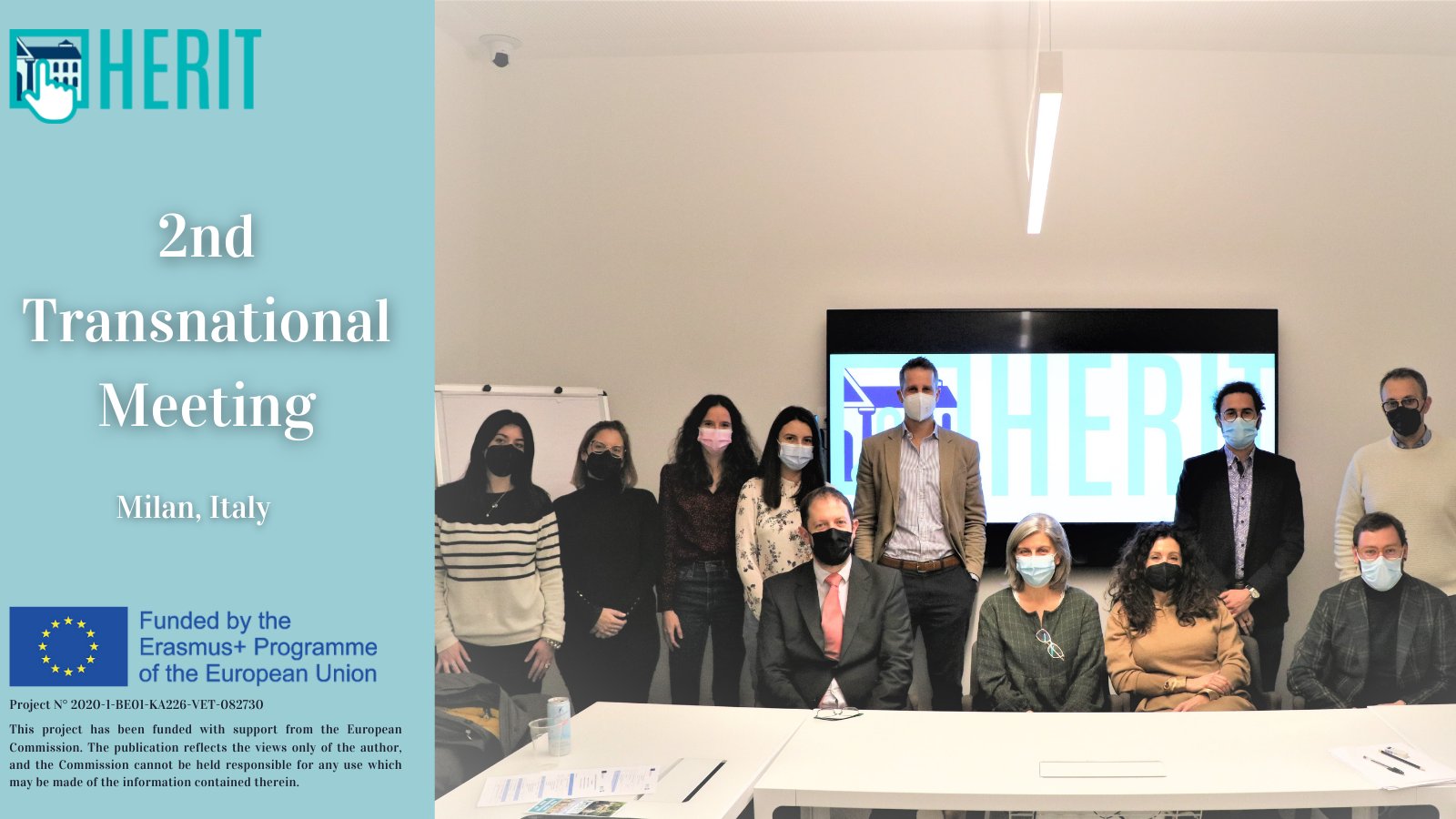
On December 16th and 17th 2021, EHH and the HERIT consortium held a Transnational Meeting in Milan, Italy. The meeting was held in person and progress has been made regarding the objectives of the project.
Consortium partners had the chance to brainstorm and discuss the contents of each learning unit outlined in the curriculum which will be developed into a comprehensive course for private owners that will be then adapted to the MOOC format (a massive open online course tailored for private owners of historic houses). Additionally, the national guides were presented during the meeting, as well as the executive summary guide and the case studies.
The Kick-off of the HERIT– Heritage Efficient through Relevant IT use project parts one and two took place on the 21st June and the 5th July 2021. Other meetings were held virtually in the summer of 2021.
Third Transnational Meeting in A Coruna, Spain
From May 23rd until May 25th 2022, the HERIT consortium gathered in A Coruna, Spain, to discuss the project’s further steps and the structure of the MOOC (Massive Open Online Course), which will consist of four modules:
Module A: PRIVATE HISTORIC HERITAGE MANAGEMENT: HOW TO BE INNOVATIVE?
- What is “heritage”?
- What are the new models for managing a private historic heritage?
- How to create activities related to your historic house?
Module B: BUSINESS MANAGEMENT AND PLANNING: BASICS CONCEPTS, DIGITAL TOOLS AND RESOURCES APPLIED TO MANAGEMENT, COVID-19: DEVELOPING RESILIENT BUSINESS MODELS.
- What, how, and whom to sell historic houses to? Diversifying their sources of funding
- Tourism ressources, spaces and markets: product concept and positioning
- Consumer behaviour: differentiation by types of clients and by type of product
Module C: DIGITAL SKILLS BEYOND THE MANAGEMENT OF HISTORIC HOUSES.
- Introduction to innovative digital marketing tools
- Which innovative digital tools can be used for our heritage site?
- Understanding innovative digital tools
Module D: INNOVATIVE CONTENT RELATED TO HERITAGE AND TOURISM.
- Digital marketing plan
- Website and social network use
- How to develop innovative content?
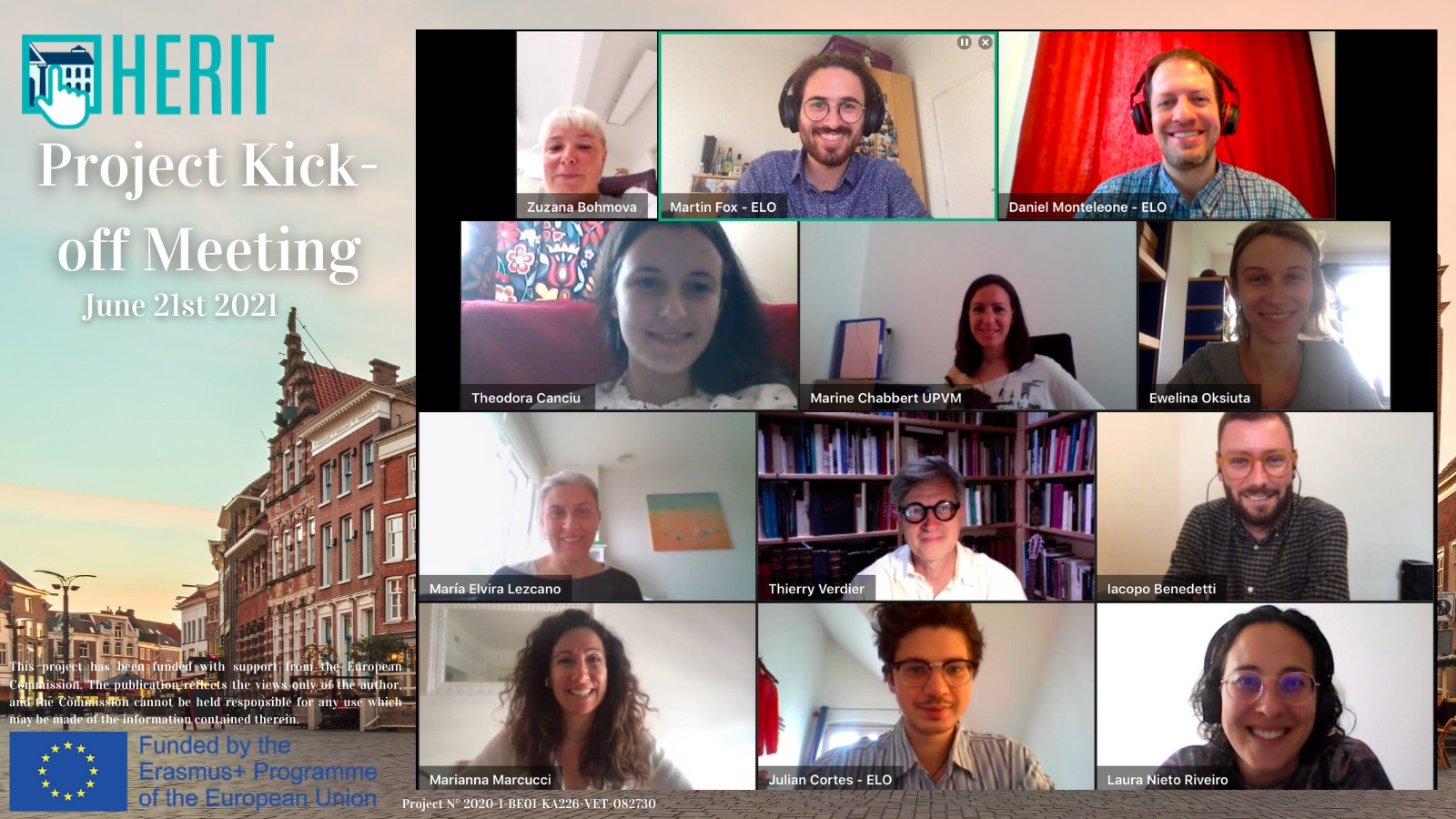
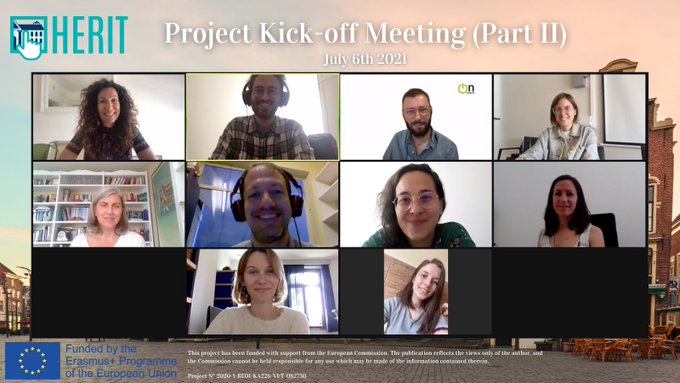
Latest News: The HERIT Newsletter is out! Click here to subscribe.
Consortium
The project consortium is composed of 7 partners from 5 different EU countries.
MEMBERS
Université Paul-Valéry Montpellier (France)
Universidade da Coruna (Spain)
European Landowners Organisation (Belgium)
European Historic Houses (Belgium)
Asociace majitelů hradů a zámků, z.s. (Czech Republic)
On Projects Advising SL (Spain)
Invasioni Digitali (Italy)

